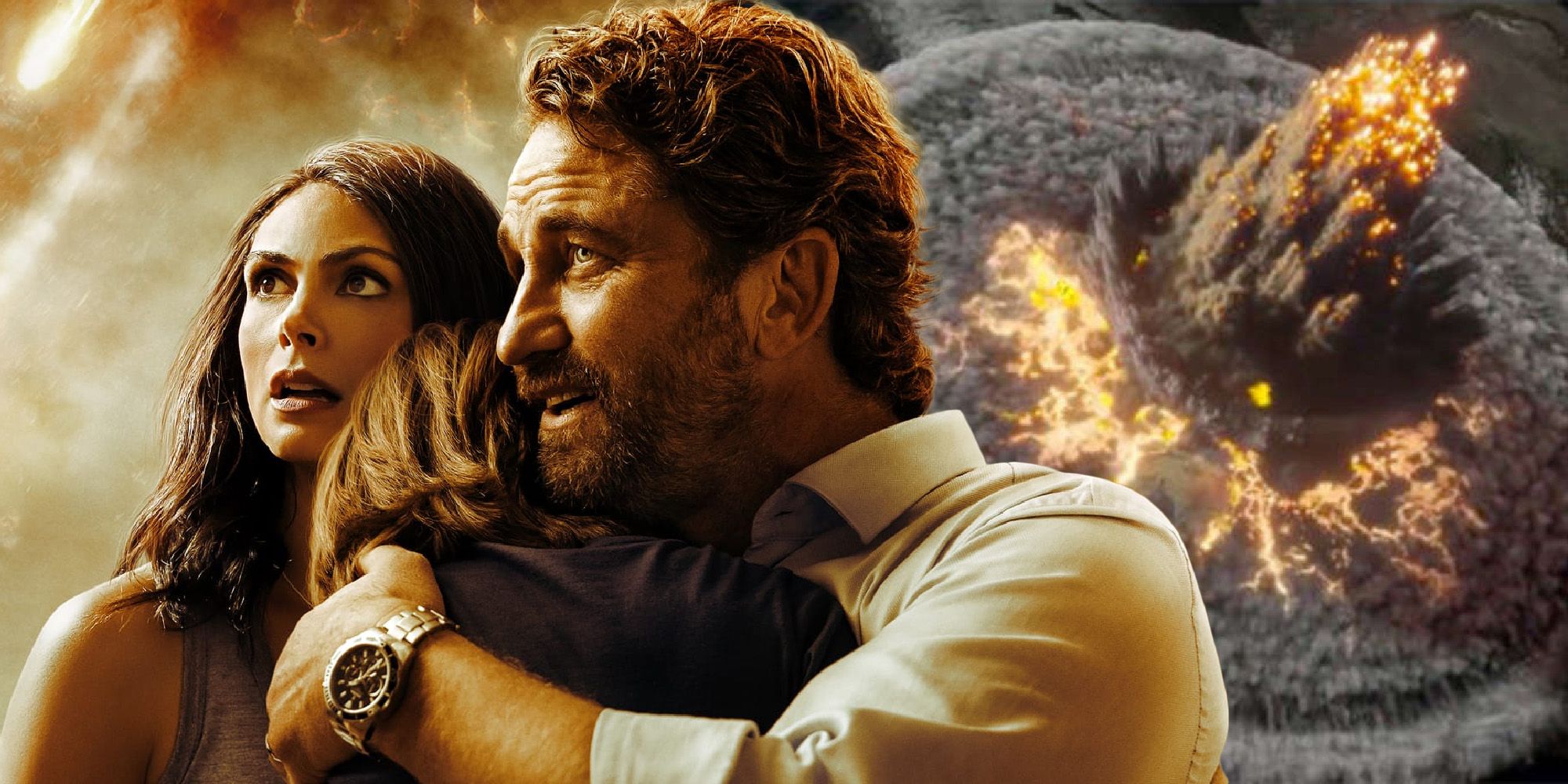How realistic is Ric Roman Waugh’s sci-fi disaster movie, Greenland? Greenland chronicles the tale of a family, who is faced with a struggle for survival amid the possibility of planetary annihilation due to an approaching comet. Greenland is currently available for viewing on HBO Max and Amazon Prime.
Greenland opens with the story of John Garrity (Gerard Butler) and his wife Alison (Gotham’s Morena Baccarin) living near Atlanta Georgia, who are temporarily separated, yet trying their best to make things work between them. They come together at a neighborhood party to watch a chunk of a comet pass through the Earth’s atmosphere; however, it turns out that the comet is expected to hit the planet and annihilate all life within a few days. Meanwhile, John gets an invitation for him and his family to a top-secret bunker in Greenland, which would allow them to survive. As the couple and their child, Nathan, struggle to get there, all hell breaks loose while the whole of humanity scrambles for survival.
In terms of how scientifically accurate Greeland is, Waugh carried out personal research into the practical nitty-gritties of comets, while consulting with scientists at NASA’s Jet Propulsion Laboratory. This process was completed by further speculation into what could realistically occur if a comet was set to destroy the Earth’s surface, lending an aura of authenticity to the film’s titular premise. Waugh also used a prehistoric event as a reference point, mainly the asteroid that rendered dinosaurs extinct 66 million years ago, which posited a host of contradictory notions about the matter. While Waugh kept these factors in mind, the crux of Greenland is ultimately its emotional weight, as an over-reliance on scientific accuracy could possibly hamper the film’s dramatic center, which is the story of a family struggling for survival.
Moreover, the actors, especially Butler and Baccarin, were heavily involved in discussions regarding respective character trajectories, especially how they would be reacting to such high-stakes situations. To back up the situation’s probable authenticity, the narrative draws direct parallels to the Tunguska event in Siberia, wherein a small-body explosion flattened all the trees in the area. The eye-witness reports of the comet, fictionally named Clarke, seems to have echoes of eyewitness reports of an asteroid breakup in Chelyabinsk, Russia. However, Greenland suffers from a scientific standpoint in two major areas - one being the lack of clarity in tracking the comet’s path, and how such impending predictions are monitored in general, which almost always result in evacuation in dire scenarios.
Hence, scientifically accurate or not, Greenland is a tough watch after the effects of the pandemic, especially during sequences that touch upon family separation, pressing circumstances, and lost medication during times of duress. The trauma experienced by the film’s characters are altogether jarring, intimate, and upsetting in nature. While Greenland is hard-hitting as a disaster movie, the reaction of the human race to impending worldwide annihilation is more terrifying to behold, with the news featuring heartbreaking stories on the daily and grocery stores being emptied of essential goods.


